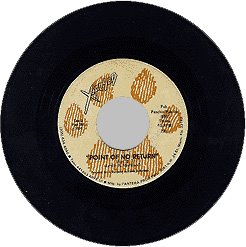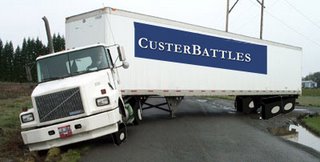
First, thanks to Schroeder for posting both excerpts and an online link to a Harpers article focusing on Katrina and other disasters (you'll want to look at both: some of what PGR posted isn't available online).
Then, to contrast, take a look at this vile spew Steve Gilliard came across (scroll down to the post entitled Those shiftless, lazy people.
There's a whole lot to look at, particularly in the Harpers piece (if you've got the time, I urge you to read PGR and the actual link) , but I'll direct your attention to the following:
Harpers
The most hellish image in New Orleans was not the battering waves of Lake Pontchartrain or even the homeless children wandering on raised highways. It was the forgotten thousands crammed into the fetid depths of the Superdome. And what most news outlets failed to report was that those infernos were not designed by the people within, nor did they represent the spontaneous eruption of nature red in tooth and claw. They were created by the authorities. The people within were not allowed to leave. The Convention Center and the Superdome became open prisons. “They won't let them walk out,” reported Fox News anchor Shepard Smith, in a radical departure from the script. “They got locked in there. And anyone who walks up out of that city now is turned around. You are not allowed to go to Gretna, Louisiana, from New Orleans, Louisiana. Over there, there's hope. Over there, there's electricity. Over there, there is food and water. But you cannot go from here to there. The government will not allow you to do it. It's a fact.” Jesse Jackson compared the Superdome to the hull of a slave ship. People were turned back at the Gretna bridge by armed authorities, men who fired warning shots over the growing crowd. Men in control. Lorrie Beth Slonsky and Larry Bradshaw, paramedics in New Orleans for a conference, wrote in an email report (now posted at CounterPunch) that they saw hundreds of stranded tourists thus turned back. “All day long, we saw other families, individuals and groups make the same trip up the incline in an attempt to cross the bridge, only to be turned away. Some chased away with gunfire, others simply told no, others to be verbally berated and humiliated. Thousands of New Orleaners were prevented and prohibited from self-evacuating the city on foot.” That was not anarchy, nor was it civil society.
From Gilliard's link:
A Loveland lawmaker has been blasted by his colleagues for e-mailing an essay written by someone else that accused "welfare-pampered blacks" of waiting for the government to save them from Hurricane Katrina.
Rep. Jim Welker, a Republican, said Thursday morning that he forwarded the article because of its message about society victimizing people by making them dependent on government programs...
Excerpts from an essay by the Rev. Jesse Lee Peterson posted Sept. 21, 2005, on WorldNetDaily.com:
• "Say a hurricane is about to destroy the city you live in. What would you do? If you're black . . . you'll probably wait for the government to save you."
• "When 75 percent of New Orleans residents had left the city, it was primarily immoral, welfare-pampered blacks that stayed behind and waited for the government to bail them out."
• "About five years ago, in a debate before the National Association of Black Journalists, I stated that if whites were to just leave the United States and let blacks run the country, they would turn America into a ghetto within 10 years. (But) I gave blacks too much credit. It took a mere three days for blacks to turn the Superdome and the convention center into ghettos, rampant with theft, rape and murder."
• "Had New Orleans' black community taken action, most would have been out of harm's way. But most were too lazy, immoral and trifling to do anything productive for themselves."
• "Blacks are obligated to help themselves and not depend on the government to care for them. We are all obligated to tell them so."
I think I see why Solnit concluded with this:
This is the disaster our society has been working to realize for a quarter century, ever since Ronald Reagan rode into town on promises of massive tax cuts. Many of the stories we hear about sudden natural disasters are about the brutally selfish human nature of the survivors, predicated on the notion that survival is, like the marketplace, a matter of competition, not cooperation. Cooperation flourishes anyway. (Slonsky and Bradshaw were part of a large group that had set up a civilized, independent camp.) And when we look back at Katrina, we may see that the greatest savagery was that of our public officials, who not only failed to provide the infrastructure, social services, and opportunities that would have significantly decreased the vulnerability of pre-hurricane New Orleans but who also, when disaster did occur, put their ideology before their people.

























